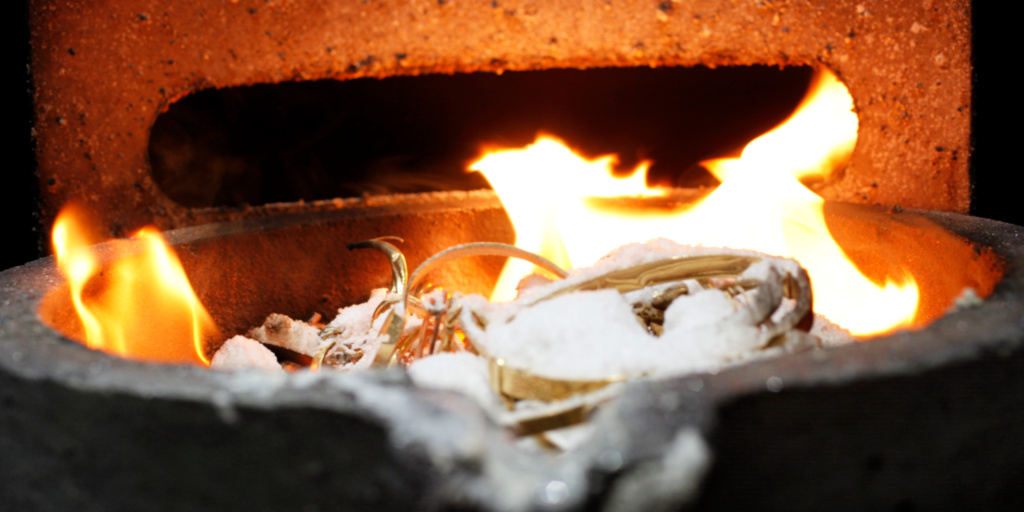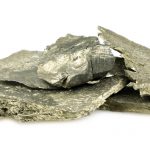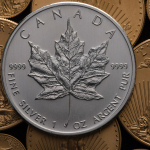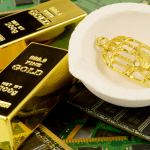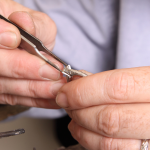While the use of precious metals in dental restorations has been on the decline due to newer and improved dental technologies, dental gold and other precious metals still accumulate quickly in dental offices. According to DentistryIQ, many restorations with metal placed over the past decades are now reaching their life expectancy and need to be replaced, keeping dentists busy. That’s why many dental professionals recycle dental gold and other filler metals such as silver, platinum and palladium.
Who buys dental gold? Precious metal refineries with on-site labs do, like Manhattan Gold & Silver, for example. Dental professionals simply bring or ship their dental scrap to our refinery, where we assay it to determine its precious metal content. The payout is based on the dental scrap’s market value the day it is evaluated.
Materials Used in Dentistry
Common materials used in dentistry include gold, porcelain, silver amalgam or composite (white) resin. Gold, however, is still the strongest and longest lasting material dentists can use. Like teeth, gold is durable but also malleable, which makes it an ideal metal for use in a crowns, caps and fillings. Gold is also ideal for dental applications because it is non-toxic and hypoallergenic. Other precious metals used in dentistry include platinum and palladium. The main drawback to these alloys is their metallic color, which is why metal crowns are generally relegated to back molars. So how do these precious metals, including gold, end up as dental scrap?
What Is Dental Scrap?
Dental scrap is any type of prosthetic that contains precious metals, such as crowns, but may also include:
- Onlays and inlays
- Porcelain-fused-to-metal crowns and bridges
- Fillings
- Implants
- Caps
- Dental grindings
When a patient needs a crown or bridge removed, these dental restorations essentially become dental scrap. Dental professionals generate plenty of dental scrap through extractions and other procedures. The rise in value of precious metals, has made dental scrap even more profitable lately.
However, not all dental scrap is recyclable. Substances like amalgam are actually made up of a mixture of materials that can include toxic mercury, silver, zinc, tin and copper and must adhere to strict guidelines for collection and disposal. The metal component of partial dentures, which is generally made out of base metal, is also not valuable.
It’s difficult to determine the material and value of any dental scrap without an assay and evaluation, which is why it’s important to work with a reputable refinery.
Who Buys Dental Gold?
At Manhattan Gold & Silver, the recycling process begins when a client brings us dental scrap to be recycled. We melt down dental scrap into a bar and determine its precious metals content with an assay. The fire assay process has been practiced for centuries to determine the weight of precious metals including gold, silver and platinum. Compared to other determining techniques, like X-ray assays, fire assays are the most precise because other impurities are “burned” off, leaving only the purest of metals. It is the most accurate way to test the purity of gold.
The Benefits of Recycling Dental Gold
For dental professionals, the main benefit of recycling dental gold is financial. Recycling dental scrap can help offset overhead costs and boost profits. The second is environmental. Recycling dental scrap helps reduce the amount of resources spent on mining unique materials. Manhattan Gold & Silver is equipped to handle dental scrap of any size and mix. Our expertise makes dental scrap refining simple and profitable for our dental clients. We can quickly and easily refine dental scrap and pay out the maximum value based on the current market rate, as determined by the London Fixing.
Want to optimize your practice and recycle dental gold and alloys with Manhattan Gold & Silver? Create an account to get started today or contact us directly for price quotes.


